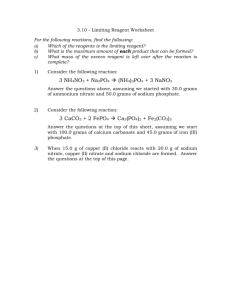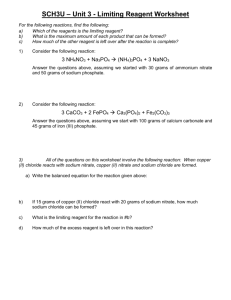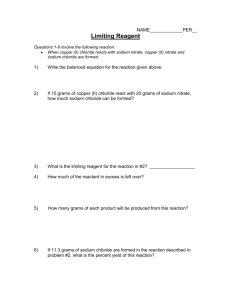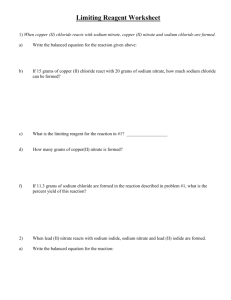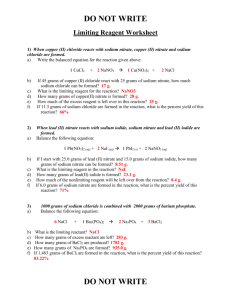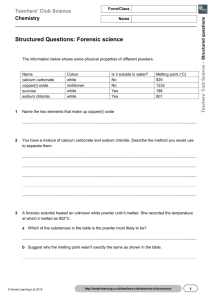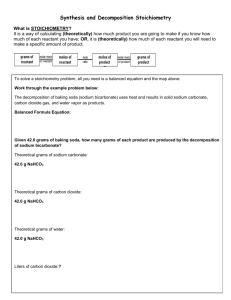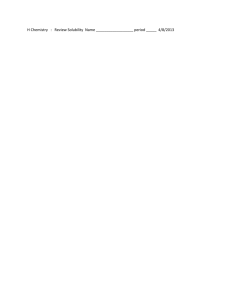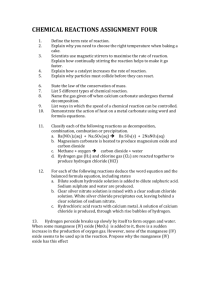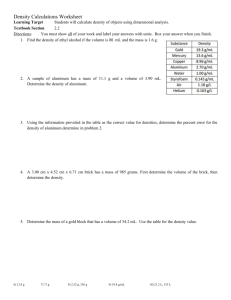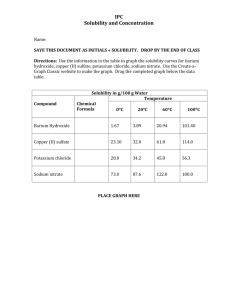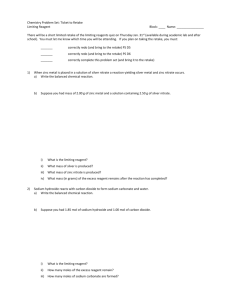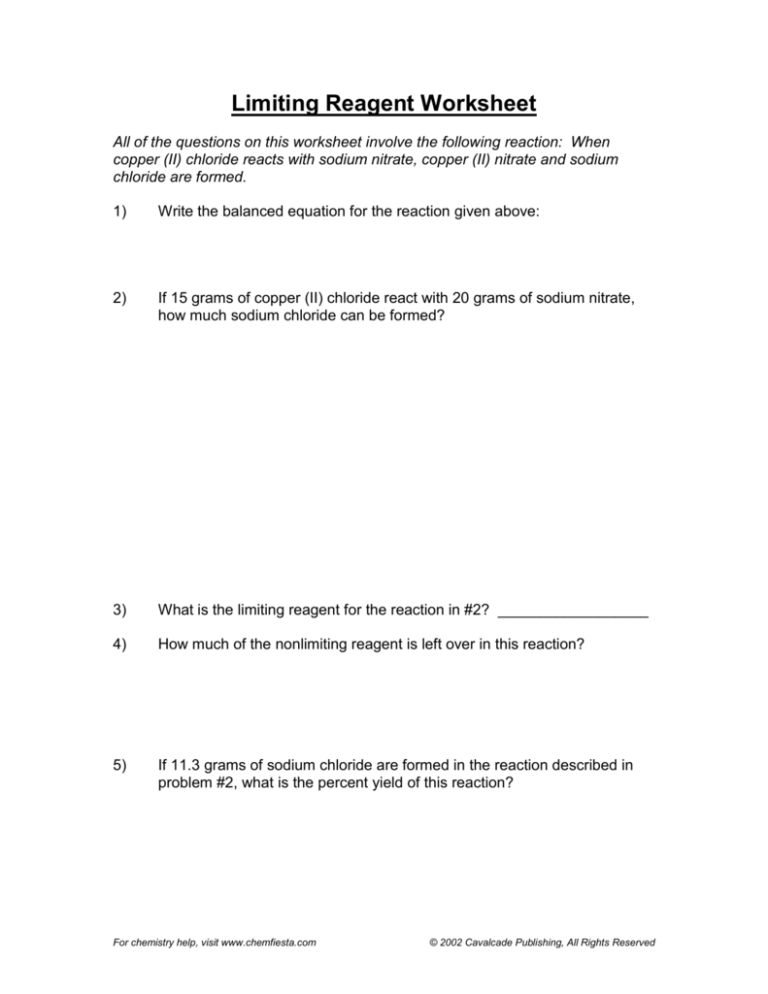
Limiting Reagent Worksheet
All of the questions on this worksheet involve the following reaction: When
copper (II) chloride reacts with sodium nitrate, copper (II) nitrate and sodium
chloride are formed.
1)
Write the balanced equation for the reaction given above:
2)
If 15 grams of copper (II) chloride react with 20 grams of sodium nitrate,
how much sodium chloride can be formed?
3)
What is the limiting reagent for the reaction in #2? __________________
4)
How much of the nonlimiting reagent is left over in this reaction?
5)
If 11.3 grams of sodium chloride are formed in the reaction described in
problem #2, what is the percent yield of this reaction?
For chemistry help, visit www.chemfiesta.com
© 2002 Cavalcade Publishing, All Rights Reserved
Limiting Reagent Worksheet
All of the questions on this worksheet involve the following reaction: When
copper (II) chloride reacts with sodium nitrate, copper (II) nitrate and sodium
chloride are formed.
1)
Write the balanced equation for the reaction given above:
CuCl2 + 2 NaNO3 Cu(NO3)2 + 2 NaCl
2)
If 15 grams of copper (II) chloride react with 20 grams of sodium nitrate,
how much sodium chloride can be formed?
To solve this problem determine how much sodium chloride can be
made from each of the reagents by themselves. When you work out
how much sodium chloride can be made with 15 grams of copper (II)
chloride, you find that 13.0 grams will be formed. When starting with
20 grams of sodium nitrate, 13.6 grams will be formed. Since 13.0
grams is the smaller number, that’s our answer. Please note that
rounding differences may cause your answers to be slightly
different, so if they are, don’t panic.
3)
What is the limiting reagent for the reaction in #2? copper (II) chloride
4)
How much of the nonlimiting reagent is left over in this reaction?
Nonlimiting reagent remaining = 20 grams – 20 grams (13.0 / 13.6)
= 0.88 grams
5)
If 11.3 grams of sodium chloride are formed in the reaction described in
problem #2, what is the percent yield of this reaction?
11.3/13.0 x 100% = 86.9%
For chemistry help, visit www.chemfiesta.com
© 2002 Cavalcade Publishing, All Rights Reserved

